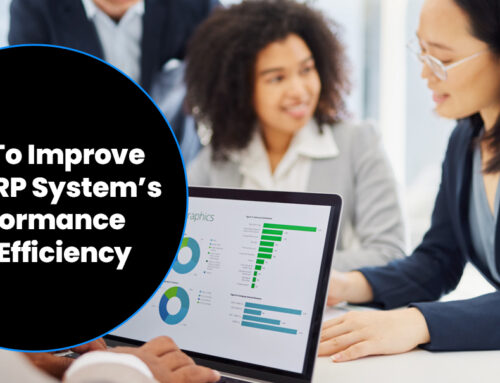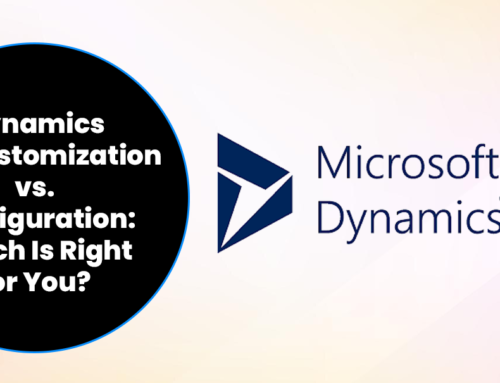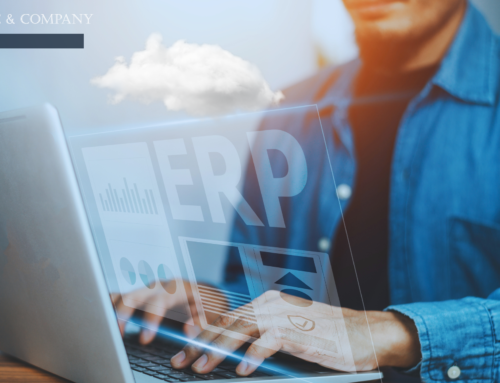
Until relatively recently, enterprise resource planning (ERP) systems were the exclusive domain of large corporations — huge companies that possessed the space, funds and IT resources to manage their own private on-premise data centers. But then, everything changed. Enter: the cloud.
The rise of cloud technology has opened countless doors in the digital world, including within the landscape of enterprise software. Enterprise resource planning software developers quickly realized that ERP platforms could be made available as a cloud-based software-as-a-service (SaaS) offering, thereby eliminating the need for on-premise data centers. The result: more affordable and highly-scalable cloud ERP solutions — solutions that are now far more practical and within reach for the small or medium-sized business (SMB.)
Now, business decision-makers are faced with a choice: on-premise ERP vs cloud ERP. Which is best? How do the two types of ERP platform compare?
Cloud ERP vs On-premise ERP – What’s the Difference?
As you set off in search of the best enterprise software solution for your company’s needs, it is important that you understand the difference between the two types of ERP platform.
The key difference surrounds the manner in which the enterprise resource planning software is hosted and where the associated data is stored.
- On-premise ERP – On-premise ERP involves enterprise software that runs off private servers that are owned and operated in-house. Associated data is also stored within the in-house data center. Your company is charged with the oversight and maintenance of the data center, its equipment and the IT staff.
- Cloud ERP – In the case of cloud-based ERP platforms, the software is hosted in the cloud and accessed via the web. This may be a public cloud or a private cloud. A third-party vendor typically manages the cloud platform, so there are no maintenance costs associated with this type of ERP solution.
Wondering which type of ERP platform is right for your needs? There are many points to consider because these two enterprise software configurations differ significantly in terms of their benefits.
Cloud vs On-premise ERP Software Cost and Licensing
There is a significant difference when it comes to the cost of enterprise resource planning software in the cloud vs on-premise. On-premise ERP platforms require the company to purchase a software license. This may be a one-time fee or an annual fee. The cost is usually quite significant in the case of a one-time licensing fee.
Cloud ERP platforms are typically billed on a monthly or annual basis, as is typical for SaaS offerings. In this case, it’s more like a subscription versus a one-time licensing fee and the up-front, out-of-pocket cost tends to be much less than what you would spend for an on-premise ERP software license.
Maintenance of On-premise ERP vs Cloud-based ERP Platforms
Maintenance is a key consideration when choosing between cloud ERP and on-premise ERP systems. On-prem ERP must be maintained in-house. The organization is charged with maintaining data center equipment in addition to maintaining and updating the ERP software. This means that organizations need to hire ERP professionals full-time to take care of this needed maintenance.
With cloud ERP, the SaaS service provider maintains the cloud and the software platform. In many cases, users do not need to worry about implementing software updates, which can be configured to run automatically. (Although many platforms allow an organization to oversee ERP platform maintenance and updates in-house if they feel comfortable doing this.)
Scalability of On-prem ERP and Cloud ERP Platforms
Scalability ought to be a key consideration for companies both large and small. Most organizations will ultimately strive to grow and expand their operations and as such, they require an ERP solution that can grow with their business.
Conversely, a scenario may arise whereby a business needs to consolidate its operations, scaling down to make things more manageable. In this scenario, it is advantageous to have an ERP platform that can accommodate your scale-down without becoming a financial or operational burden.
Cloud ERP platforms are the best choice for scalability thanks to the SaaS model. With the cloud, users pay for the resources that they use; no more and no less. Virtually all cloud platforms automatically make additional resources available as the need arises, making cloud ERP management rather easy.
Compare to on-prem ERP where you have a data center with pricey equipment. To scale up, you must acquire additional equipment, hire more staff and even expand your data center. Or, in the event of a scale-down, you may be forced to fire staff and run equipment that can support far more than what you’re actually utilizing — that’s a waste of resources and finances.
Cloud-based ERP also usually entails monthly and/or annual billing, which is great for scalability. Some cloud ERP software solutions are available without any sort of contract; those that do have a contract typically have a modest fee for ending the service contract early in the case of a scale-down.
Considering Long-Term Commitment for On-premise vs Cloud ERP
Enterprise software generally entails a rather significant long-term commitment, simply due to the cost of implementation, training, and rollout. But if there is any question concerning long-term commitment, a cloud-based ERP platform is the way to go.
On-premise ERP involves the purchase of a software license, data center equipment and the company must hire staff to manage that equipment. This does not align well with anything other than a long-term commitment.
Conversely, cloud-based ERP systems are billed out on a monthly and/or annual basis. There is no equipment to buy. You don’t need to hire an IT specialist to manage an in-house data center. And since cloud ERP platforms are typically made available as a SaaS offering, there is no need to purchase a costly software license. When considered as a whole, this allows for minimal losses in the event that an organization decides to move away from a particular ERP platform.
Cloud vs On-premise ERP Security
Security is a very real and serious concern when it comes to an ERP solution since you have large masses of potentially-sensitive data centralized within this platform.
For the most part, cloud and on-prem ERP platforms tend to be fairly equal when it comes to the overall level of security. Cloud ERP utilizes advanced forms of encryption — among other technologies — to achieve a secure environment.
Since the cloud is accessible from anywhere with an internet connection, it is highly vulnerable to security issues — a reality that has prompted cloud service providers to implement extensive security measures in an effort to minimize vulnerability.
On-prem ERP software platforms can be isolated from the internet entirely, running on a private network for elevated security. This is one area where on-premise enterprise software has a leg-up on cloud-based platforms. But practically speaking, most organizations do not require this level of security.
Whether you choose an on-premise platform or a cloud-based solution, one thing is clear: ERP systems are complex. As such, you need experienced right tech talent to maximize the ROI from your enterprise software investment. At Cox-Little, we understand the importance of finding the perfect ERP consultant and we specialize in pairing clients with tech talent. If you are about to begin the hiring process for your ERP platform, reach out to the team at Cox-Little and let our expert team set you off down a path toward success.





